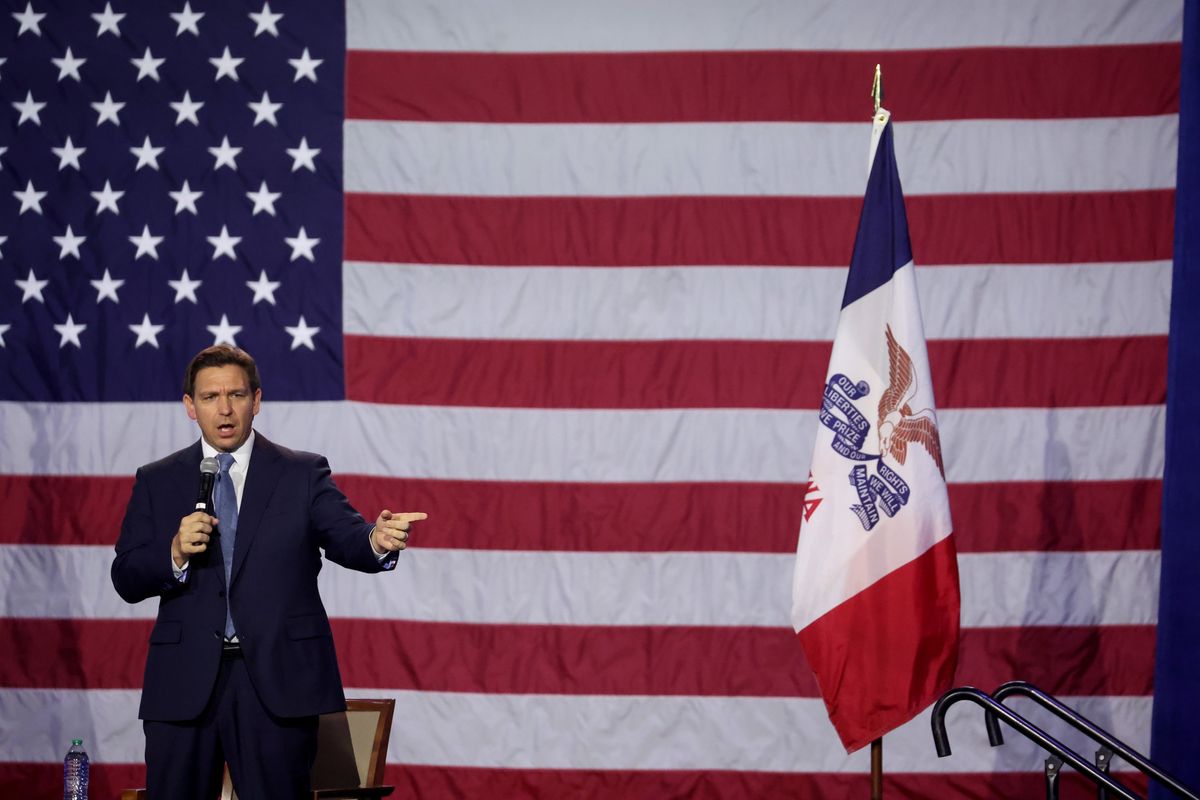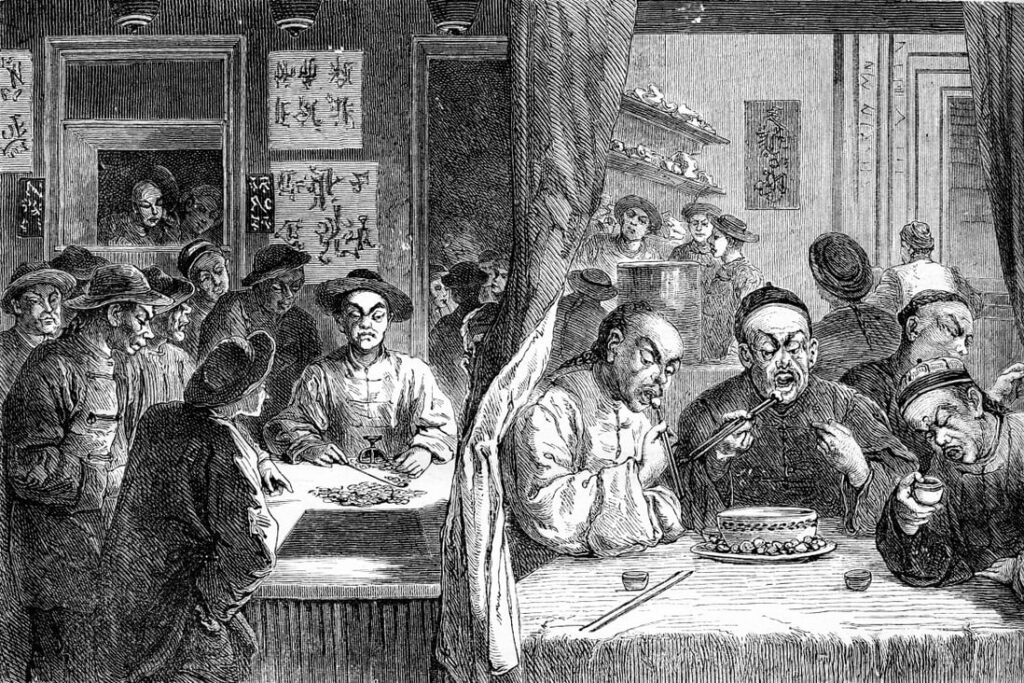 As I was reading Norman Finkelstein’s new book, I’ll Burn That Bridge When I Get to It!: Heretical Thoughts on Identity Politics, Cancel Culture, and Academic Freedom, I thought early on of Obama’s joke at the expense of Rahm Emanuel: “he’s one of a kind, and thank god he’s one of a kind.” Finkelstein, too, is very much one of a kind. But the analogy with Emanuel fails, because in fact one Rahm Emanuel is far too many whereas one Finkelstein is not nearly enough. We need hundreds of him. That is to say, we need hundreds of left intellectuals with the courage and intelligence to think for themselves and never sell out, to refuse to compromise—even to risk alienating fellow leftists by publicly repudiating woke culture and the more vacuous forms of identity politics in favor of an unstinting adherence to class politics. Nor would it hurt to have more writers who are as eloquent and hilarious as him.
As I was reading Norman Finkelstein’s new book, I’ll Burn That Bridge When I Get to It!: Heretical Thoughts on Identity Politics, Cancel Culture, and Academic Freedom, I thought early on of Obama’s joke at the expense of Rahm Emanuel: “he’s one of a kind, and thank god he’s one of a kind.” Finkelstein, too, is very much one of a kind. But the analogy with Emanuel fails, because in fact one Rahm Emanuel is far too many whereas one Finkelstein is not nearly enough. We need hundreds of him. That is to say, we need hundreds of left intellectuals with the courage and intelligence to think for themselves and never sell out, to refuse to compromise—even to risk alienating fellow leftists by publicly repudiating woke culture and the more vacuous forms of identity politics in favor of an unstinting adherence to class politics. Nor would it hurt to have more writers who are as eloquent and hilarious as him.
It is widely known on the left that Finkelstein is, as it were, a martyr to truth and justice, having been subject to outrageous calumniation and denied an academic career because of his relentless advocacy of the Palestinian cause. With I’ll Burn That Bridge, he shows his willingness to burn bridges not only with the establishment but also with the “left” of today, for which he shows scarcely mitigated contempt. He considers it, or dominant tendencies within it, to have degenerated from soaring moral and intellectual heights with Rosa Luxemburg, W. E. B. DuBois, and Paul Robeson into a censorious, narcissistic, morbidly navel-gazing culture preoccupied with subjectivist trivialities like personal pronouns at the expense of solidaristic struggle for a better world. “Whenever I see he/him or she/her, I think fuck/you.” (“You must be living an awfully precious life,” he goes on, “if, amid the pervasive despair of an economy in free fall, your uppermost concern is clinging to your pronouns.”) If the book is not simply ignored, one can expect that it will elicit a flood of vituperation from leftists and liberals: “racist, misogynistic, transphobic, white supremacist, juvenile, incoherent, petty!” The intelligent reader will not be tempted by such facile judgments but instead will engage with the book’s substance, because it has important things to say.
It consists of two parts: in the first, Finkelstein “deconstructs” identity politics and the cancel culture it has given rise to, focusing on five figures whom he eviscerates: Kimberlé Crenshaw, Ta-Nehisi Coates, Robin DiAngelo, Ibram X. Kendi, and Barack Obama. In the second part, he considers a related subject with which he is intimately familiar: academic freedom. To what extent should a regime of free speech reign on the university campus, and under what circumstances should an academic’s “offensive” speech in the public square result in disciplinary action? Is it wrong for universities to grant Holocaust deniers a platform? When teaching, should professors strive for “balance”—presenting with equal force all sides of an issue so that students can make up their own minds—or should they teach only their own perspective? What should we think of campus speech codes? Finkelstein addresses all such questions at length and in a spirit of uncommon seriousness.
One difficulty with the book is that it has a sprawling and meandering character, consisting variously of memoir, brutal polemic, dense argumentation, forensic dissection of texts, scores of long quotations, innumerable long footnotes, and very funny ridicule of everything and everyone from Michelle Obama to Bari Weiss, from the New York Times to woke terms like Latinx (“why would an ethnic group want to sound like a porn site?”). At its core, however, beneath the variegated surface, the book is an anguished cri de coeur against pervasive cultural, political, and intellectual rot—an unapologetic defense and exegesis of the heavily maligned “Western canon” (John Stuart Mill, Karl Marx, Bertrand Russell, Kant, DuBois, Frederick Douglass, and the like), a sustained lamentation over how far the left has fallen, a furious denunciation of rampant philistinism and pusillanimous groupthink (quoting Mill: “That so few now dare to be eccentric marks the chief danger of the time”), and a proudly unfashionable celebration of such quaint notions as Truth, Reason, and Justice (which Finkelstein capitalizes, in a consciously anti-postmodernist flourish). The book’s kaleidoscopic nature and intimidating length might bewilder the reader, so in this review I propose to summarize and comment on several of its main arguments, to facilitate their diffusion.
Before doing so, however, I can’t resist quoting a few Finkelsteinian zingers, to preface the following heavy discussion with a bit of levity. On MSNBC’s Joy Reid: “living proof that not all yentas are Jewish and not all bovines are cows.” On Angela Davis: “Once upon a time she was on the F.B.I.’s Ten Most Wanted List. Now she’s on Martha’s Vineyard’s Five Most Coveted List.” On Henry Louis Gates: “a virtuoso at crawling on the ground while typing on his keyboard.” On Amy Goodman (whom he doesn’t name): “Goddess of Wokeness…a woke machine, churning out insipid clichés as her mental faculty degenerates to mush.” On Ibram X. Kendi: “mallet-wielding grifter…preposterous poseur…[whose] ‘definitive history of racist ideas in America’ reduces to a compendium of prepubescent binary name-calling.” On Robin DiAngelo’s morbid obsession with diagnosing “racism”: “She is the monomaniacal Captain Ahab in pursuit of the White Whale. She is little Jackie Paper out to slay Puff the Racist Dragon. Her palette comprises two colors—white and black… What an unremitting, remorseless, insufferable bore!” On the widespread fascination with transgender people: “the first day of a graduate seminar, students used to describe their intellectual interests. Nowadays, it’s de rigueur to declare your sexual orientation. It’s only a matter of time before a student announces, ‘I’m she/her and I’m packing a thick, juicy nine-incher.’”
In an adaptation of Emma Goldman’s “If I can’t dance, I don’t want your Revolution,” Finkelstein declares: “If I can’t laugh, I don’t want your Revolution.” Political conservatives, too, have complained about the humorlessness of the woke crowd, but if you’re alienating even die-hard leftists, maybe it’s time to rethink your messaging.
Identity politics
Debates on the left over identity politics go back decades, and it is easy to be sick of them. Unfortunately, there is no prospect of their ending as long as identity politics and woke culture remain dominant on the left and in the Democratic Party—as they surely do today, at the expense of a class politics. Finkelstein is aware that the identity politics of the left isn’t quite the same as the identity politics of the Democrats, but he is right that they overlap, and that such a politics is more conducive to being neutered into empty symbolism (statues, token representation in the corporate class, electing a vapid con artist like Obama) than a Bernie Sanders-style—or more radical—class politics is.
Serious leftists, like Robin D. G. Kelley, have written competent defenses of identity politics, and Finkelstein certainly isn’t arguing against the necessity of incorporating anti-racism, anti-sexism, anti-homophobia, and other such “woke” agendas into popular movements. What he objects to are the forms that identity politics often takes, and its tendency to devolve into celebration of an insular tribal identity. The binary, balkanizing drawing of lines between groups and near-contempt for the “oppressing” group—white vs. black, cis vs. trans, straight vs. gay, man vs. woman—is, in its parochialism and vitiating of solidarity against capitalism, not what a real left politics looks like. He quotes at great length some words of Frederick Douglass in 1894 that might well have gotten him “cancelled” today:
We hear, since emancipation, much said by our modern colored leaders in commendation of race pride, race love, race effort, race superiority, race men, and the like… [But] I recognize and adopt no narrow basis for my thoughts, feelings, or modes of action. I would place myself, and I would place you, my young friends, upon grounds vastly higher and broader than any founded upon race or color… We should never forget that the ablest and most eloquent voices ever raised in behalf of the black man’s cause, were the voices of white men. Not for the race; not for color, but for man and manhood alone, they labored, fought and died… It is better to be a member of the great human family, than a member of any particular variety of the human family. In regard to men as in regard to things, the whole is more than a part. Away then with the nonsense that a man must be black to be true to the rights of black men. I put my foot upon the effort to draw lines between the white and the black…or to draw race lines anywhere in the domain of liberty.
Moreover, the very idea of being “proud” of what group one happens to belong to—proud of being black or a woman or gay or trans—is puzzling. “[I]t perplexes why one should feel proud of one’s zoological difference,” Finkelstein writes. “[W]hat sense is there in making a ‘cult’ of that over which one has no choice…? Shouldn’t one aspire to transcend the ‘inevitable’ part—the color of one’s skin—so as to be judged by the ‘free part’—the content of one’s character?” Similarly, the idea of “loving one’s people” is odd, first in that it amounts to “loving one’s self writ large,” which, in its narcissism, hardly seems like a noble thing. It easily becomes chauvinism. Second, one would certainly not love all the individuals who are alleged to constitute “one’s people.” Many or most of them one would likely personally despise—just as, on the other hand, one would “love” many people belonging to a “different group.” Too much identification with some imposed identity such as race is exactly what leads to irrational racial hostility (including against whites), sexist hostility (also against men), and other divisive social forces. Identity politics can be dangerous and destructive, not only on the right but even the left. “In their goodness and badness, there exist only persons, not peoples.”
The vacuousness of contemporary identity politics is best exposed by considering its “great minds,” the Crenshaws, Coateses, Kendis, and DiAngelos. For a really thorough demolition, Finkelstein would have had to review the record of various feminist and queer theorists too, but it’s a big enough task to critique the writers on race. Or, more precisely, that isn’t a difficult task—it’s so easy that Finkelstein is able to devote huge chunks of these chapters to sheer mockery—but it does require patience and a willingness to wade through endless intellectual muck. Take Crenshaw. Unsurprisingly, in her seminal 1989 article on intersectionality “Demarginalizing the Intersection of Race and Sex,” “she conspicuously omits class in her dissection of oppression.” It disturbs her that white feminists are presumptuous enough to speak for black women, but she “seems less concerned or, for that matter, even conscious that a high-achieving Black woman speaking for Black working-class women might also be problematic.”
Or take DiAngelo. She has a pathological obsession with racism and an utterly Manichean, paranoid view of the world. If you’re white, you’re a racist—whether you’re John Brown or Jefferson Davis, a fascist or an anti-fascist. Racism is ubiquitous, “immovably entrenched in our psyches and structures” (as Finkelstein paraphrases), “the air we breathe and the water we drink,” all-encompassing and constantly reproduced, she says, “automatically”—and therefore, evidently, ineradicable. At best, it can occasionally be “interrupted”—through the “diversity training” at which DiAngelo excels and for which she charges a hefty fee. Meanwhile, her book White Fragility has sold almost a million copies and has had quite an influence on woke culture, helping to instill a collective fixation on—incidentally—the same idée fixe of Ta-Nehisi Coates (according to Cornel West): the almighty, unremovable nature of white supremacy. “Whites,” says DiAngelo, “control all major institutions of society and set the policies and practices that others must live by.” Yes, whites are a homogeneous master-class: the billionaires and the working class, they’re all equally guilty, they’re all oppressors. And to blacks she says, as Finkelstein summarizes, “Beware! Don’t trust white people! They’re all racists, racists to the core! Every last one of them! They’re hard-wired for racism; it’s in their DNA.” This is a message perfectly calculated to pit workers against each other. No wonder the business class has so enthusiastically promoted her book!
What about Ibram X. Kendi? Finkelstein seems to take particular pleasure in disemboweling this (as he says) non-scholar and non-activist, for his critique/massacre is a full 110 pages long and features withering juxtapositions with a titan, DuBois. It’s sad that a book review can’t communicate the verve or the slicing humor of this chapter (and others). Kendi’s book Stamped from the Beginning: The Definitive History of Racist Ideas in America, for example, whose “only novelty is to shoehorn the epithets racist or antiracist, segregationist or assimilationist into every other sentence…[is] less a definitive history than an exhaustive, and exhausting, taxonomy that’s as supple as a calcified femur and as subtle as an oversized mallet. It proceeds from the fatuous, almost juvenile, conceit that fastening binary, wooden labels on the actors and ideas incident to Black history will shed light on it.” One problem with Kendi’s and our culture’s promiscuous, indiscriminate use of the label “racist” is that the concept becomes diluted: “to be a racist ceases to be what it ought to be: a scarlet badge of shame… [W]hat information is conveyed by a label that collapses the distinction between Frederick Douglass [whom Kendi considers a racist] and the Grand Wizard of the K.K.K.?” The abolitionists were all racists, as were DuBois, Martin Luther King Jr., Richard Wright, E. Franklin Frasier, etc. etc.—while Kendi singles out for praise Harry Truman, Michelle Obama, Eldridge Cleaver, Pam Grier, Bo Derek, Kanye West, etc. “[T]he rigor of his taxonomy recalls not the Periodic Table but, on the contrary, Pin the Tail on the Donkey.”
As Finkelstein says, Kendi embraces the woke conceit that, over four hundred years, “African-Americans haven’t registered any progress in the struggle against racism. Each seeming stride forward has been attended by a step backward.” If anything, he implies, things have only gotten worse! Such an “analysis” recalls the flagrantly ahistorical, unabashedly gloomy academic school of Afro-pessimism, and, by reifying differences between “whites” and “blacks” and valorizing anti-white resentment among the latter, serves the same function of hindering the class solidarity necessary to achieve real progress in struggles over the distribution of wealth, working conditions, affordable housing, high levels of unemployment, expansion of public resources, abysmal healthcare, environmental destruction, hypertrophying militarism, and the like. (No wonder, again, Kendi has been fêted by the establishment and can charge $45,000 for his talks. It helps, too, that his only real policy proposal is…affirmative action.)
After Finkelstein’s devastating exposure of Kendi’s countless inconsistencies, hypocrisies, and idiocies—his woke dismissal of the Civil Rights Movement in favor of the macho Black Panthers (who, by comparison, achieved almost nothing); his (in Kendi’s words) “striving to accept and equate and empower racial difference” even as he argues that the idea of race is a “mirage” that was invented to rationalize exploitation; his insistence that all racial disparities in society are purely a result of racism; his valorizing of racial differences (e.g., he praises the “irrepressible Blackness” of his friend) at the same time as he says anti-racists see only individuals and not racial behavior (“there is no such thing as Black behavior”); his positing of a deep separation between so-called white culture and black culture; his arguing against the racist “assimilationist” urge to value white culture over black even as he manifestly values white culture over black (lecturing before white audiences, accepting a fellowship at Harvard University, presiding over a research center at Boston University, being proud of publishing in white journals like The Atlantic)—nothing remains but the empty husk of a social-climbing charlatan. That such a person can be widely considered to be more or less on the left is a crushing indictment of the state of the left.
For charlatanry, though, few can beat the next entry on Finkelstein’s shit list: Obama. “Barack Obama is the perfected and perfect instrument of identity politics, its summa summarum. He represents the cynical triumph of form over substance, color over character. He is the cool Black dude who is also the reliable—in Professor Cornel West’s words—‘mascot of Wall Street.’” Most leftists are hardly enamored of Obama, so I need not summarize the case against him. Nor would I even try, because I couldn’t possibly reproduce the distinctive Finkelsteinian humor—and most of this very long chapter consists of (factually grounded) ridicule, directed at nearly everyone in Obama’s presidential coterie, a “revolting retinue of bootlickers.” Aside from Obama himself, the most satisfying skewering, I found, was of Samantha Power, the “Battleaxe from Hell…downright evil…[whose] conscience only bestirs at the suffering of victims of official U.S. enemies.” One might argue that in this chapter Finkelstein’s profound contempt for the “Elmer Gantry in blackface” at the head of this gaggle of amoral mediocrities gets the best of his prodigious literary gifts, since the ruthless mockery goes on and on and becomes somewhat tiresome, but it can’t be gainsaid that it’s all well-deserved.
After six chapters and almost 400 pages on the subject, Finkelstein’s summary of identity politics is worth quoting:
Identity politics has distracted from and, when need be, outright sabotaged a class-based movement [viz., Bernie Sanders’] that promised profound social change. It counsels Black people not to trust whites, as their racism is so entrenched and so omnipresent as to poison their every thought and action. It conveys to poor whites that they, no less than the white billionaire class, are beneficiaries of racism, so that it would be foolhardy of them to ally with Black people… Then, identity politics puts forth demands that either appear radical but are in fact politically inert—Defund the police, Abolition of prisons—as they have no practical possibility of achievement; or that leave the overall system intact while still enabling a handful, who purport to represent marginalized groups, to access—on a “parity” basis—the exclusive club of the “haves.” This, in effect, performance politics has spawned a disgusting den of thieves who brand themselves with radical-sounding hashtags, churn out radical-sounding tweets, and insinuate themselves into positions of prominence, as they rake in corporate donations, cash corporate paychecks, hang out at the watering holes of the rich and famous, and thence can be safely relied upon not to bite the hand that feeds them…
One might object that he’s painting with too broad a brush here, that advocacy of the interests of minorities and women can, depending on the context and the cause, indeed be an essential political program, but he wouldn’t deny this. He has the highest regard for the Civil Rights Movement, after all—although he would deny that that was identity politics. “The human rights of a victimized group must, of course, be uncompromisingly defended.” More problematic than such defense is to make a cult of group differences (group “pride”) in the way of the woke, and to place class issues at the bottom of the heap rather than the top, where they belong. “Human dignity is not possible without the ability to pay for a roof over one’s head, clothes on one’s back, and food on one’s table.”
Whatever genuinely emancipatory political impulses exist in identity politics have long been, on the whole, coopted and buried under an avalanche of left-liberal virtue-signaling, preening and posing, careerism, and sabotage of a substantive left. Just consider how the woke mob reacted to the Sanders campaign, the most serious challenge to the establishment in more than a generation: they tried to “cancel” Sanders for his being a “privileged white male” with a supposed blind-spot on race. His “economic reductionism,” according to Angela Davis, prevented him from “developing a vocabulary that allows him to speak…about the persistence of racism, racist violence, state violence.” (Note the pretentious academic language, as if you need a special “vocabulary” to talk about racism and violence—which Sanders, by the way, did.) As Finkelstein says, “When the ‘hour of serious danger’ to the status quo struck during Bernie Sanders’ class-struggle insurgency, the ‘true nature’ of woke radicalism—not just its opportunism but, even more, its rancid, reactionary core—was exposed as each and all of these erstwhile ‘radicals’ enlisted under the banner to stop him.” Woke cancel culture cooperated with the establishment media’s cancel culture to stop the Sanders juggernaut.
Cancel culture and academic freedom
“Cancel culture might be defined as the turning of a person into a non-person.” By that definition, it has been around for a very long time. Arguably, it is as old as civilization. The first and second Red Scares in the U.S. were instances of cancel culture; so is the corporate media’s treatment of virtually everyone on the left; so is the woke treatment of anyone who publicly strays from the party line. Even if such victims of woke defamation campaigns usually find their footing again or don’t always suffer career consequences in the first place, the mob’s impulse to censor and silence remains operative and ever-vigilant. Finkelstein knows cancel culture from the inside, and it is unsurprising that he resolutely opposes it.
His defense of a regime of nearly untrammeled free speech is rooted, first and foremost, in his conviction that this is the surest way to Truth. He quotes DuBois: when free speech is stifled, “the nation…becomes morally emasculated and mentally hog-tied, and cannot evolve that healthy difference of opinion which leads to the discovery of truth under changing conditions.” But John Stuart Mill’s On Liberty is the text he primarily grounds his argument in, and he quotes from it liberally in his chapter on the right of even Holocaust deniers to make their case in public forums such as a college campus. “Complete liberty of contradicting and disproving our opinion,” Mill writes, “is the very condition which justifies us in assuming its truth… The beliefs which we have most warrant for, have no safeguard to rest on but a standing invitation to the whole world to prove them unfounded.” As Finkelstein translates, “if you want to rationally hug your certainty, you must first meet the challenge of every naysayer.” Your opponents can even be useful for prodding you to rethink weak points in your reasoning or evidentiary basis, exposing little errors in your arguments, giving you something to think about that you had overlooked, in general giving you the opportunity to more rationally ground your beliefs.
The mob’s desire to silence, attack, and destroy comes from feeling threatened, not from being rationally certain and confident. The latter attitudes are more likely to yield calm composure and willingness to give opponents a hearing because you know you’re able to refute them. When a mob tries to prevent someone from talking because it feels threatened by his speech, it’s quite possible, often, that his speech has some truth in it. Suppressing it—unless it’s merely emotive speech like “fuck you!”—possibly allows his opponents to persist in having false or partially false views.
But someone might reply, “What if his speech is socially harmful? Isn’t that a legitimate reason to suppress it?” Well, the definition of “harmful” is, of course, contested, and it evolves over time. Eugenics and forced sterilization were once considered a very enlightened movement, being supported by progressives like Bertrand Russell, Helen Keller, Jane Addams, and Oliver Wendell Holmes. Now eugenics is considered downright evil. Who is to say your definition of “socially harmful” is, in all cases, the right one, or that your application of it is always right? “When it comes to curbing speech,” Finkelstein says, “experience thus confirms the general rule in human affairs: humility is to be preferred over arrogance.”
Moreover, if the “harmful” speech is socially marginal such that hardly anyone believes it, what’s the great danger in letting someone say it now and then? If, on the other hand, it’s not marginal but holds the assent of millions, letting someone express it presents an opportunity to argue against it and thus inoculate people. The strategy of pure suppression is apt to lead many to think there might be something “dangerously truthful” to it—“the establishment doesn’t want us to hear this because it’s threatened by its truth!”—and thus might contribute to its diffusion across the population. People might think they’re being “rebellious” or anti-establishmentarian by believing it, and furthermore that they’re upholding noble values of free speech against authoritarian censoring leftists (as the reactionary right thinks today). I might also note that giving authorities the right to suppress or punish certain kinds of speech, and even encouraging them to do so, will soon lead to their suppressing speech you like.
The left has historically been in the vanguard of fights for free speech, from the abolitionists to the IWW (and most other unions, in fact) to the Socialists during World War I to the Civil Rights Movement. Its departure today from these honorable traditions is yet more evidence that it’s become a pseudo-left, a reactionary left—for the empowering of authorities to regulate speech is ultimately reactionary. It’s ironic that many self-styled anarchists advocate increasing the power of unaccountable bureaucrats to control what is said and what isn’t.
Admittedly, it might have strengthened Finkelstein’s discussion to consider in more depth possible counterarguments. It is, after all, very unfortunate that media operatives like Rush Limbaugh, Alex Jones, and the whole stable of Fox News social arsonists have brainwashed millions of people. It is likely they couldn’t have had such a destructive impact had the FCC’s Fairness Doctrine not been repealed in 1987. Maybe it was right to repeal it, but a case can at least be made that it was wrong. Issues of online content moderation, too, come into play in any debate over censorship, and Finkelstein doesn’t say much about these. The reason, it seems, is that he doesn’t think the internet has raised significantly new questions about free speech, and in any case there is already an extensive literature on web censorship.
Among the many excellent points he makes is one that cuts to the heart of wokeness: the collective obsession with pinning a label—racist or not, sexist or not, transphobic or not—on every thought passing through one’s head and every utterance one makes, and then cancelling all the thoughts that (and all the people who) stray an inch past what’s deemed “acceptable,” is ridiculous and paranoid. It’s also reactionary, because it makes solidarity vastly more difficult. One of the more memorable passages in the book is when he imagines, in some alternate universe, a Robin DiAngelo who actually does care about fighting oppression of blacks and not only grifting off a culture’s pathologies. Were she to speak before a group of workers, she might say something like this (italics in the original):
Although racism is real and you should always be at the ready to fight it whenever it rears its ugly head, you all, Black and white, have a helluva lot more in common. You’re all, Black and white, trapped in dead-end jobs. You all earn poverty wages… [You have to] organize together, as one because you are one, to overthrow this wretched, corrupt, god-forsaken system. You can’t eliminate every fleeting, non-p.c. thought passing through your head. The mind is a tricky business… You can’t wait until everyone’s thoughts are simon-pure. You don’t have the time, and they never will be. You cannot police your thoughts, and it’s probably better that way. Were it otherwise, you wouldn’t be human. You’re fallible, you’re imperfect vessels. You weren’t born, and your minds can’t be, immaculate… If you unite to change the system, then your psyches will fall into place. It’s common struggle, common sacrifice, that produces mutual respect, even mutual love. A connection that binds will be forged by you, united in the heat of battle facing a common enemy, each marching beside the other, each lifting the other, each protecting the other. You don’t become better persons by each of you, singly, struggling with your racist demons. You become better persons by all of you, together, struggling against an antihuman system…
Wokeness is what happens when the destruction of the labor movement proceeds so far, and social atomization becomes so all-consuming, that even the “left” adopts an individualistic, moralistic, psychologistic, censorious, self-righteous, performative approach to making social change.
“The fight against racism must focus…not on the intangible, impalpable, unchangeable, invisible, or unprovable, but, instead, on what’s substantive, meaningful, and corrigible. In the first place, securing economic opportunity and legal equality.” The Sanders program was far more substantively “anti-racist” than the puny liberal programs of most of his woke critics. (As for Sanders’ being constantly hounded to support “reparations” for blacks, I’ve explained elsewhere why that demand is anti-solidaristic, politically impossible, and ultimately a diversion from radical social transformation.)
The last chapter of I’ll Burn That Bridge delves into a specific dimension of cancel culture: when is it appropriate for a professor to be disciplined for his public behavior and statements, whether on social media or in some other context? This issue bears, of course, on Finkelstein’s own career, but he is hardly the only academic to have been disciplined in recent decades for alleged “incivility” or taking unpopular political stands. The chapter is tightly argued and has a more disciplined structure than others, consisting of analyses of four academic freedom cases (Bertrand Russell in 1940, Leo Koch in 1960, Angela Davis in 1969, and Steven Salaita in 2014) and then general reflections that conclude in a discussion of his own case. He endorses the American Association of University Professors’ standard that “a faculty member’s expression of opinion as a citizen cannot constitute grounds for dismissal unless it clearly demonstrates the faculty member’s unfitness to serve [i.e., to teach]”—which was surely not the case in the four instances he examines. But he goes much further and questions whether it should even be seen as a professional obligation that one always use civil language in one’s scholarship (which Finkelstein didn’t when writing about the Holocaust industry and Alan Dershowitz’s lies). Given all the invective in Marx’s Capital, for example, the book would never have been published by a university press today and Marx wouldn’t get a position at a top university. “But if the likes of Marx wouldn’t qualify for a tenured appointment at a first-rank university, isn’t that a reductio ad absurdum? Doesn’t it conclusively demonstrate the inanity of a standard commanding restrained and temperate language?”
One might connect Finkelstein’s lengthy discussion of academic civility with his book’s focus on woke politics by pointing to something his targets have in common: a preoccupation with policing language and thought at the expense of more substantive concerns. Academia insists on politeness, decorum, “neutral” language, which often serves to enforce conventions, emasculate dissent, and uphold power structures; wokeness insists on ceaselessly monitoring your own and others’ language, in fact making that a priority, allowing people to feel “radical” by doing nothing that remotely challenges real power structures. (No surprise that woke culture has largely emerged from the academy.) To do justice to Truth and Justice, though, requires more than this. In the case of scholarly writing and speaking,
There are moments that might positively require breaking free of the constraints imposed by polite public discourse in order to sound the tocsin that, as we indifferently carry on in a privileged sanctuary of peace and prosperity, innocent people are being butchered by our own state. The uncivil reality, not uncivil words, should be cause for reproach and excoriation, while uncivil words might be called for to bring home the uncivil reality.
It can at least be said for Finkelstein that he practices what he preaches: his book, to put it mildly, does not shrink from uncivil words.
The anti-academic
It should be clear from what has been said here that I’ll Burn That Bridge When I Get to It is an unusual book. It requires a lot of patience to read, but I think the effort is worth it. It’s not a “polished” work, but in an academic and literary environment that sometimes seems to value polish above all else, including moral and intellectual substance, one appreciates something a little more raw. And someone with the courage to tear down—in order to build up.
Finkelstein is in the tradition of the great incorruptible truth-tellers. He relates an anecdote from when he was a graduate student at Princeton in 1984: his work exposing a bestselling scholarly hoax on the Israel-Palestine conflict had gotten the favorable attention of the editor of the New York Review of Books and his friend (Arthur Hertzberg) at Columbia University, and he sensed that career possibilities were opening up for him. But then, in a meeting with Hertzberg, he was bluntly asked, “Are you in Chomsky’s stable?” Despite knowing the probable consequences of giving the wrong answer, he unhesitatingly said he deeply admired Chomsky and was grateful for his support—which, of course, was the wrong answer. He never heard from the men again. Even so, “I was proud of myself,” he writes, “not to be tempted, at all, by the lure of fame and fortune, and I was grateful for this test of my fidelity to Truth (and Chomsky), so that I could prove in my own person dead wrong the cynics who imagine, or console themselves, that everyone has a price.”
That unshakeable commitment, that willingness not to conform, combined with intellectual power, is chiefly what has set Finkelstein apart from most of his peers. One hopes that his book and his example will inspire young idealists to follow in his path.
The post
The Righteous Outrage of Norman Finkelstein first appeared on
Dissident Voice.
This post was originally published on Dissident Voice.
































